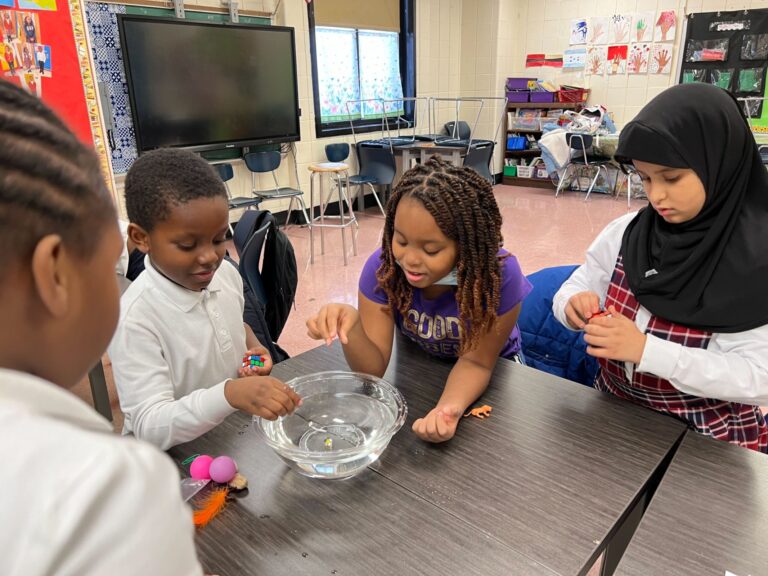Every Step Counts
From that first babble to the first day of preschool, early childhood is full of magical moments—but it’s also a time of critical brain and social development.
The first five years of life lay the foundation for lifelong success.
What happens during these years can impact a child’s:
-
Learning and memory
-
Emotional regulation
-
Physical health
-
Social skills
-
Economic mobility
According to the Heckman Equation, every $1 invested in early childhood development yields up to $7 in long-term returns—through improved health, educational outcomes, and reduced societal costs.
That makes early childhood not just a moral priority, but an economic strategy.
Why Early Development Matters
-
The brain forms over 1 million neural connections per second during early childhood
-
These connections lay the foundation for emotional and cognitive growth
-
Positive experiences—like loving caregivers, safe environments, and interactive play—boost development
-
Toxic stress (e.g. abuse, neglect, violence) can harm brain architecture, but supportive relationships can buffer those effects
Key Developmental Milestones
By Age 1
-
Babbling, responds to name, says “mama” or “dada”
-
Sits unassisted, pulls up to stand, may begin walking
-
Seeks comfort from familiar adults, expresses joy and frustration
By Age 2
-
Uses 2-word phrases, follows simple instructions
-
Parallel play, imitates adults, identifies people and objects
-
Starts asserting independence
By Age 3
-
Asks questions, knows some colors, follows multi-step directions
-
Climbs, pedals a tricycle, begins cooperative play
-
Expresses more complex emotions and tells short stories
By Ages 4–5
-
Understands rules, names some letters and numbers
-
Draws shapes, hops on one foot
-
Shows imagination, problem-solving, and empathy
Supporting Development at Home & in the Community
Healthy development isn’t just about milestones—it’s about consistent care and supportive environments.
-
️ Talk, read, and sing daily – Language-rich interaction grows the brain
-
Encourage free play – Sparks creativity, builds motor skills
-
Create routines – Establishes safety and emotional stability
-
Prioritize nutrition and sleep – Fuels brain growth and immunity
-
Model empathy and resilience – Children mimic adult behavior
-
Promote safe exploration – Foster curiosity while ensuring safety
-
Enroll in early learning programs – Builds foundational academic and social skills
A DMV Story: Malik’s Journey
At 2½, Malik’s grandmother noticed he wasn’t speaking much. Unsure if it was just a phase, she reached out to his pediatrician and was referred to Maryland’s Child Find.
Through early intervention:
-
Malik entered a Head Start classroom
-
He received therapy from a speech-language pathologist
-
Participated in structured play and social-emotional activities
Now 5, Malik is reading short words, telling stories, and making new friends every day.
“I was scared something was wrong,” his grandmother said. “But getting help early made all the difference. Now he loves to talk!”
When to Seek Help
Every child develops at their own pace, but early support leads to better outcomes.
Red flags to watch for:
-
Missing key speech or motor milestones
-
Difficulty with eye contact or play
-
Unusual aggression, extreme shyness, or social withdrawal
What to do:
-
Talk to your child’s pediatrician
-
Ask about developmental screening
-
Contact your state’s early intervention program
Conditions like autism, ADHD, speech delays, and motor issues respond better to early diagnosis and coordinated care.
DMV-Based Early Childhood Resources
-
Maryland Child Find – Developmental screenings and services
Visit site » -
DC Strong Start Program – Services for children under 3 with delays or disabilities
Visit site » -
Virginia Infant & Toddler Connection – Early intervention for ages 0–3
Visit site »
National Resources
-
CDC Learn the Signs. Act Early.
Visit site » -
Zero to Three – Tools for parents, providers, and educators
Visit site » -
Autism Speaks First Concerns Toolkit
Visit site »
Final Thoughts: One Child at a Time
From baby steps to bold strides, every child’s path is shaped by their caregivers, their environment, and their access to support.
Whether you’re a parent, grandparent, teacher, or community leader—you have the power to shape the future.
Investing in early development is one of the most cost-effective, life-affirming ways to build a stronger society—one child at a time.
Dr. Bertrand Fote, MD, MBA, FACEP, CF²
Health Equity Advocate | Champion for Early Learning

